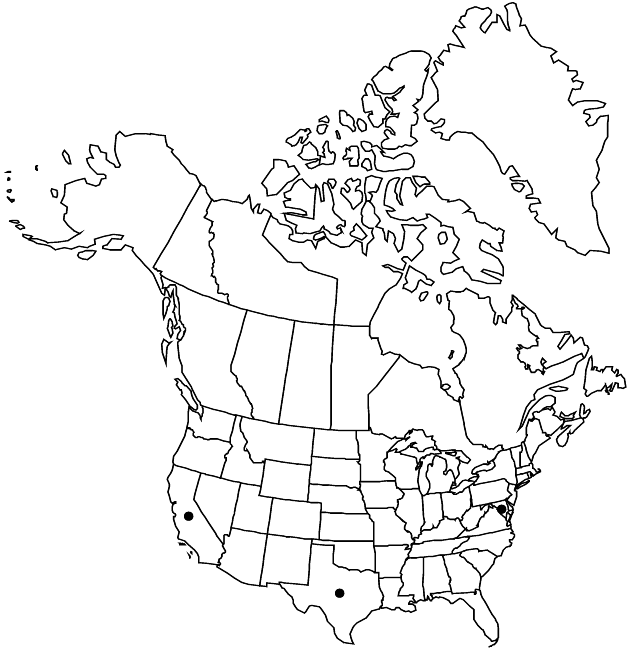Difference between revisions of "Sanvitalia procumbens"
J. Hist. Nat. 2: 176, plate 33. 1792.
FNA>Volume Importer |
FNA>Volume Importer |
||
| Line 47: | Line 47: | ||
|publication year=1792 | |publication year=1792 | ||
|special status= | |special status= | ||
| − | |source xml=https://jpend@bitbucket.org/aafc-mbb/fna-data-curation.git/src/ | + | |source xml=https://jpend@bitbucket.org/aafc-mbb/fna-data-curation.git/src/f50eec43f223ca0e34566be0b046453a0960e173/coarse_grained_fna_xml/V19-20-21/V21_152.xml |
|tribe=Asteraceae tribe Heliantheae | |tribe=Asteraceae tribe Heliantheae | ||
|subtribe=Asteraceae (tribe Heliantheae) subtribe Ecliptinae | |subtribe=Asteraceae (tribe Heliantheae) subtribe Ecliptinae | ||
Revision as of 20:35, 16 December 2019
Stems procumbent to erect, 3–15 cm. Leaf blades ovate to lance-linear, 10–60 × 4–31 mm. Phyllaries 13–21, unequal. Ray corollas 2–9 mm. Cypselae: rays 2.5–3.5 mm with awns 1–3 mm, clearly 3-faced, adaxial faces often 2–3-nerved; discs strongly dimorphic within single heads: outer 4-angled, wingless, inner ± flattened, 1–2-winged. 2n = 16, 32.
Phenology: Flowering summer–fall.
Habitat: Ruderal
Elevation: 10–1000 m
Distribution

Calif., Md., Tex., Mexico, Central America.
Discussion
Sanvitalia procumbens has been seen only sporadically in the flora; it probably is not a resident.
Selected References
None.
Lower Taxa
None.